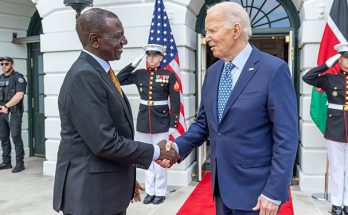 This was one of the messages to emerge during a panel discussion at the Farmer’s Weekly Agribusiness Africa Conference at Emperor’s Palace in Johannesburg on 4-5 July.
This was one of the messages to emerge during a panel discussion at the Farmer’s Weekly Agribusiness Africa Conference at Emperor’s Palace in Johannesburg on 4-5 July.
The session ‘Building Bridges, Crossing Borders’ focussed on intercontinental challenges and opportunities.
One of the participants was Jeff Blackbeard, an Africa strategy advisor, who said there was no ‘one size fits all’ recipe for developing value chains in Africa. “Africa isn’t one country – customers in different countries have different preferences. We need to remember that when developing value chain,” he said.
“Africa isn’t one country – customers in different countries have different preferences. We need to remember that when developing value chain,” he said.
The session’s opening address was delivered by Agricultural Research Council CEO Dr Shadrack Moephuli. He began by pointing out there was a silent revolution underway on the continent in the form of a food system transformation. He said urbanisation had played a huge role in this, with urban food supply
He said urbanisation had played a huge role in this, with urban food supply having increased five-fold since the 1970s.
Other panellists were Ezra Steenkamp, deputy director of the Trade Research Directorate: International Trade at the department of agriculture, Dr Langa Simela, Absa business development manager, and Wessel Jooste, head of export at GARENI Industries in France. Prof Johan van Rooyen from Stellenbosch University was moderator.
Steenkamp told delegates that, when it came to trade among African countries, South Africa’s government was also involved in negotiations on plans for an African Intercontinental free trade agreement.
Moephuli discussed trade trends on the continent and said these were largely happening via regional approaches, such as those driven by the Southern African Development Community (SADC), the Economic Community of West African States (Ecowas), the African Union (AU) and the SA Customs Union (SACU), among others.
Cross-border challenges, he said, included animal disease control, logistics, the need for increased investment in research and development, value-chain development, skills development and the regulatory environment for cross-border trade.
In closing, Van Rooyen said he saw a tremendous opportunity for agribusiness on the continent: “There is a demand that is exploding in rural and urban areas in Africa. The potential to feed that demand is enormous,” he said.




